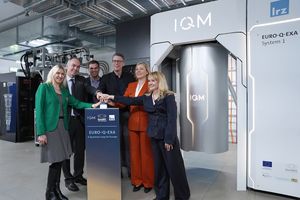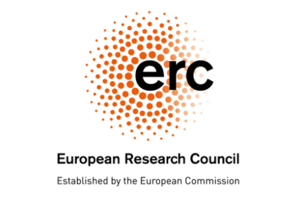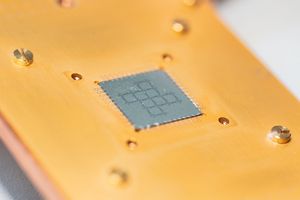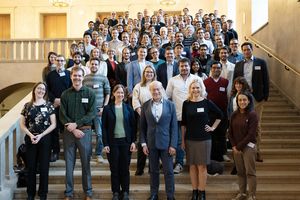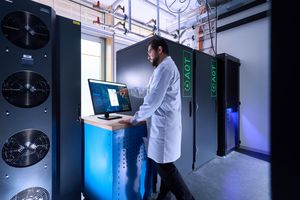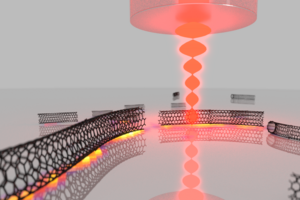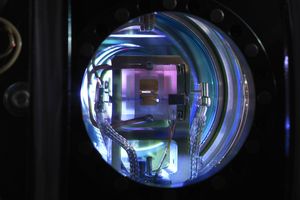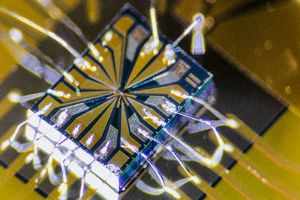
News
First European quantum computer for Germany: Euro-Q-Exa begins operation at Leibniz Supercomputing Centre
Today, Euro-Q-Exa, the first European quantum computer of the EuroHPC Joint Undertaking in Germany, went into operation at the Leibniz Supercomputing Centre (LRZ). The system has 54 qubits and is to be supplemented by an additional system with more than 150 qubits by the end of 2026. Connected to the LRZ's supercomputer, Euro-Q-Exa is now available to researchers in Europe and is intended to advance technical independence in quantum computing.
ERC Consolidator Grants for Christopher Eichler and Christian Schilling
MQV members Christopher Eichler of Friedrich-Alexander-Universität Erlangen-Nürnberg (FAU) and Christian Schilling of Ludwig-Maximilians-Universität München (LMU) have been awarded the prestigious Consolidator Grants of the European Research Council (ERC).
MQV institutes and start-ups play key role in EU’s first pilot line for superconducting quantum chips
The European Union has approved SUPREME, a major new pilot line to industrialize superconducting quantum chip fabrication, coordinated by VTT and funded through the EU Chips Joint Undertaking. As part of this initiative involving 23 partners across eight EU member states, one of the three central fabrication sites will be hosted in Germany, specifically in Garching and the Munich area, supported by a strong consortium of German research institutions and technology developers.
Symposium "Towards applications of quantum computing": networking science and industry
On 11 and 12 November, the symposium "Towards applications of quantum computing" took place. The event was organized by Munich Quantum Valley (MQV) together with the Fraunhofer Institute for Cognitive Systems IKS, supported by Bayern Innovativ and QUTAC. The symposium brought together representatives from industry and science working on quantum computing applications with hardware and software developers.
Ion-trap quantum computer ready for novel research and development at the LRZ
The ion-trap quantum computer from Alpine Quantum Technologies, procured by the Leibniz Supercomputing Centre and Munich Quantum Valley, is now operational at LRZ's Quantum Integration Centre, making it the first of its kind in a computing center.
Quantum-optics start-up Qlibri selected for prestigious European Innovation Council Transition grant
Earlier this month, the European Innovation Council (EIC) announced that Qlibri's QlibriNANO, the world's most sensitive absorption microscope, is among the projects selected to receive a grant of up to €2.5 million.
A trapped-ion quantum computer for Munich Quantum Valley
In cooperation with Munich Quantum Valley, the Leibniz Supercomputing Centre is procuring a quantum computer based on trapped-ion technology.
Lighthouse project "Quantum circuits with spin qubits and hybrid Josephson junctions" explores the core of possible future quantum computers
Four research groups of the University of Regensburg (UR) started their work in the lighthouse project "Quantum circuits with spin qubits and hybrid Josephson junctions" at the beginning of the year. Within the project, which is funded by the Free State of Bavaria as part of the Munich Quantum Valley (MQV), they are investigating central components of possible future quantum computers based on semiconductor spin qubits and superconducting qubits.
